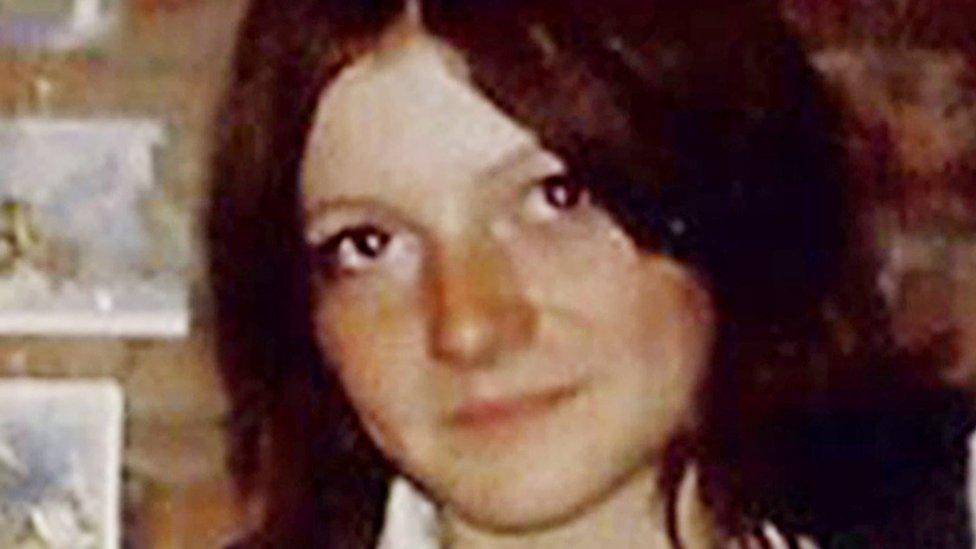Birmingham pub bombings: Chris Mullin allowed to keep source secret
- Published
Chris Mullin: 'My actions were in the public interest'
A journalist may keep secret the identity of a man who police say is responsible for the deaths of 21 people in the Birmingham pub bombings.
A court backed Chris Mullin in a fight against West Midlands Police which wanted to force him to reveal a source over the 1974 atrocities.
Police lawyers maintained Mr Mullin's notes could solve the case, saying they contained the name of the bomb planter.
The former MP said he was "grateful" for the judge's decision.
"The right of a journalist to protect his or her sources is fundamental to a free press in a democracy," he said in a statement after the Old Bailey ruling.
"My actions in this case were overwhelmingly in the public interest."
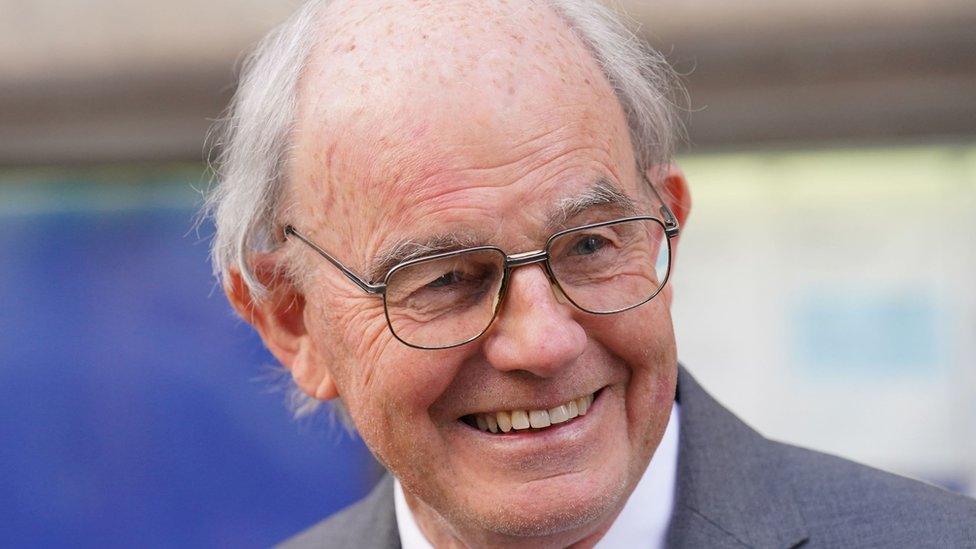
Chris Mullin has been allowed to protect a source over the Birmingham pub bombings
Mr Mullin helped expose the innocence of the so-called Birmingham Six, the men freed from prison in 1991 when their convictions over the deaths of the 21 were quashed.
No others, however, have been brought to justice for the blasts at the Mulberry Bush and Tavern in the Town pubs, and the force says its investigation has remained active.
In 2019, an inquest jury found an "inadequate" IRA warning call on the night of the bombings caused or contributed to the deaths.
The information sought by police - via the courts under the Terrorism Act - pertained to investigations by Mr Mullin in 1985 to 1986.
The work contributed to the release of the Birmingham Six but Mr Mullin always said he could not reveal the identity of an IRA man who helped prove the miscarriage of justice.
He said previously he had been guided only by his efforts to "rescue" the innocent, and that the process had been contingent on guaranteeing the anonymity of crucial parties he interviewed.
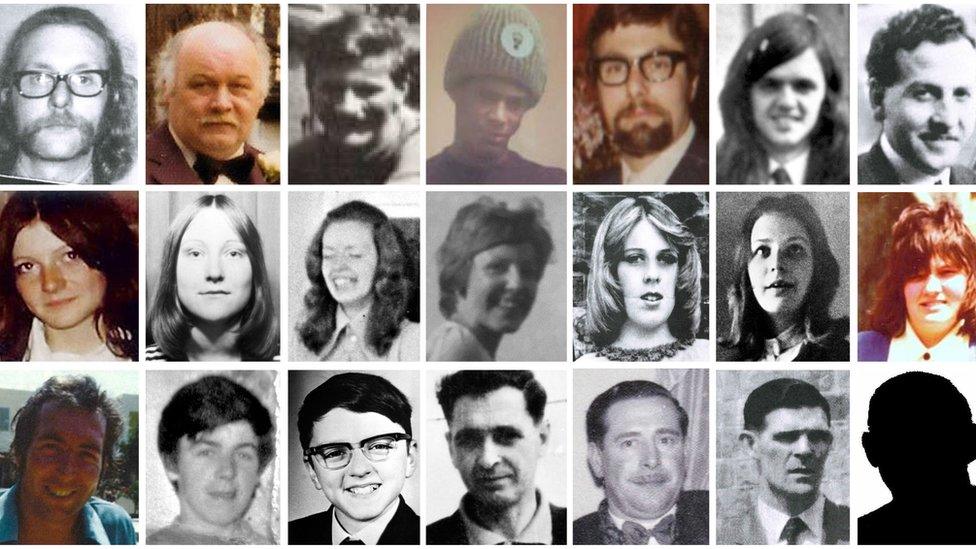
Twenty-one people were killed in two blasts in November 1974
The police's legal team said the matter centred on the bomb planter, referred to in court as AB - his true identity redacted in Mr Mullin's notes which were handed over "voluntarily" to police, save for certain omissions.
Police barristers said therein AB had made a "full confession to the murders".
The force knows who AB is and his links to the IRA. But, its barristers said, unredacted notes were needed to link the "confession" to the individual.
Having refused to comply, Mr Mullin thanked the National Union of Journalists (NUJ) who had backed his stance, as well as his legal team which called the outcome a "landmark freedom of expression decision".
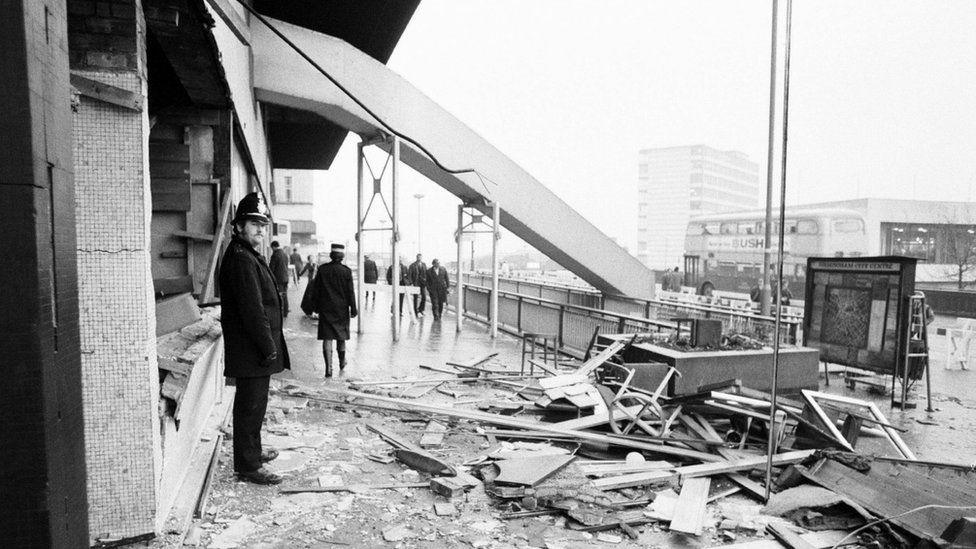
The blasts ripped apart the Mulberry Bush pub at the base of the Rotunda and the Tavern in the Town on nearby New Street
Police lawyers had said the benefit of a confession outweighed any promise of anonymity to sources.
After the ruling, the force's assistant chief constable Matt Ward said: "This was a complex issue balancing the need to pursue all significant lines of inquiry related to the 1974 Birmingham pub bombings against the rights of journalists to keep the sources of their information confidential.
"The court has given its independent judgment which we will now consider carefully.
"West Midlands Police remains committed to bringing to justice those responsible for the murder of 21 innocent victims."
Judge Mark Lucraft QC, the Recorder of London, agreed with police that Mr Mullin's research included material that was likely to be of "substantial value" to a terrorism investigation.
"It is difficult to see how a reliable note of a voluntary confessions is not something of substantial value," he said.
However, he added that no matter how strong that case was, it did not override the protection of Mr Mullin's material under Article 10 of the European Convention of Human Rights.
That law means journalists are protected from being forced to reveal their sources where their work has been carried out for a genuine public interest.
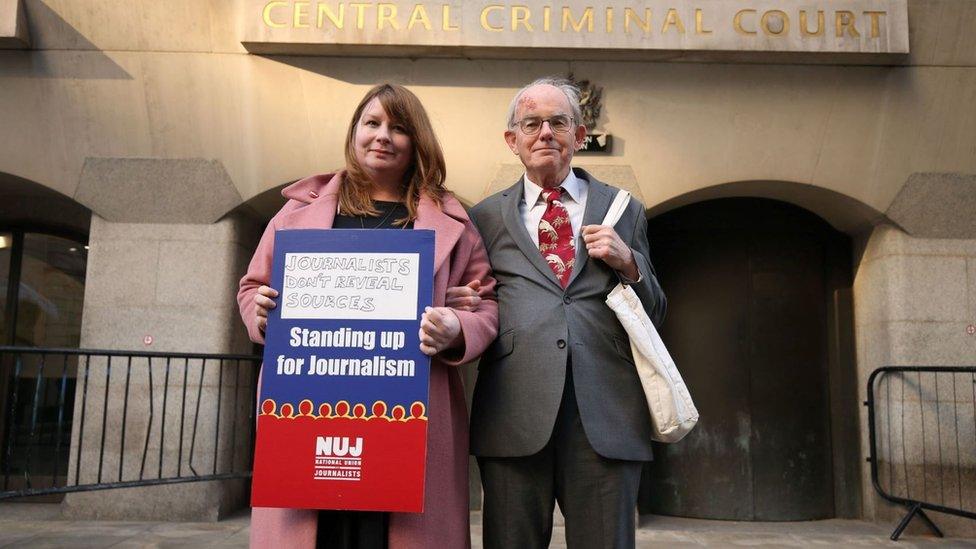
NUJ general secretary Michelle Stanistreet described the judgement as a "hopeful beacon"
Michelle Stanistreet, NUJ general secretary, welcomed the outcome, saying the judgement was a "hopeful beacon at a time when we rely more than ever on dependable news, despite journalists facing mounting legal challenges".
She said: "Few reporters have been more courageous and dogged than Chris Mullin, nor have they been so spectacularly vindicated.
"This case threatened press freedom and amounted to another attempt to criminalise the legitimate actions of journalists. In refusing this production order, the judge has recognised the principle that the NUJ will always defend - that protecting sources underpins every journalist's ability to report."
She added: "I hope that West Midlands Police now chooses to devote its many powers to amassing sufficient credible evidence to secure a conviction for those terrible bombings."

Follow BBC West Midlands on Facebook, external, Twitter, external and Instagram, external. Send your story ideas to: newsonline.westmidlands@bbc.co.uk, external
Related topics
- Published25 February 2022
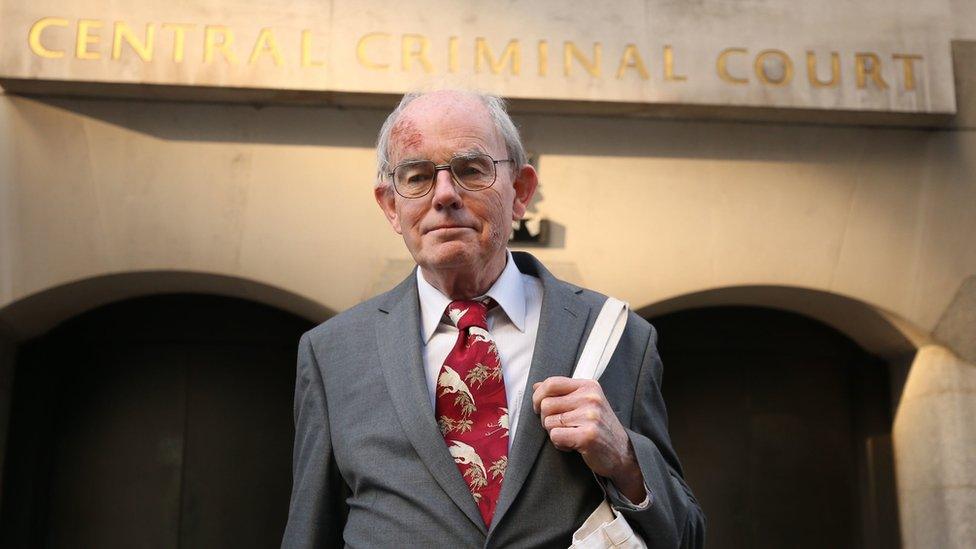
- Published5 April 2019
